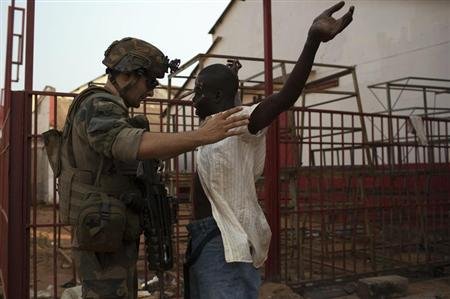by Tony Iozzo
Impunity Watch Reporter, Europe
MITROVICA, Kosovo – A top Kosovo Serb politician has been detained by the European Union’s police and justice mission on suspicion that he committed war crimes.

EU officials state that Oliver Ivanovic has been identified as a suspect as a result of a war crimes investigation that examined the Kosovo conflict of the 1990’s. No details of the alleged crimes have been released to the public, but reports indicate that Ivanovic, 60, is suspected of having tortured and killed numerous Albanians. Ivanovic is also believed to have a main organizer of a since-disbanded Kosovo Serb vigilante group widely known as the “Bridgewatchers.” The Bridgewatchers are suspected of widespread violence against ethnic Albanians.
Ivanovic turned himself into EU authorities voluntarily on Monday while accompanied by his lawyer. He was ordered to be detained for a month while investigators look into crimes “which occurred in 1999 and 2000 against Albanian victims,” Ivanovic’s lawyer, Nebojsa Vlajic, stated. Ivanovic has been transferred to a prison in Pristina.
Ivanovic is considered to be a moderate politically. He lost a recent election to be mayor of the Serb area of the northern town of Mitrovica to Krstimir Pantic. Ivanovic’s supporters believe that the recent war crimes charges are politically motivated, and untrue.
Ivanovic is the first senior Kosovo Serb official to be arrested by the European Union Rule of Law Mission (EULEX) on suspicion of war crimes against ethnic Albanians. EULEX has authority to investigate and prosecute cases that the local judiciary and police are either unable or unwilling to handle.
The 1998-1999 conflict began in Kosovo after ethnic Albanians rebelled against NATO bombings in Belgrade, which prompted an extreme crackdown.
Roughly 120,000 ethnic Serbs currently live in Kosovo, which declared independence from Serbia in 2008 and accounts for 1.8 million inhabitants, most of whom are ethnic Albanians. However, the approximately 40,000 Kosovo Serbs living in the northern part of the country do not recognize Kosovo’s independence. Serbia also rejects Kosovo’s secession. Despite this, Kosovo has been recognized by over 100 countries, including the United States and most EU states.
For more information, please see:
B92- Lawyer: Accusations Against Ivanovic “Politically Motivated” – 29 January 2014
BBC News – Kosovo Serb Politician Oliver Ivanovic Arrested Over War Crimes – 28 January 2014
InSerbia – Ivanovic Suspected of Crimes Committed in 1999, 2000 – 28 January 2014
Reuters – EU Arrests Moderate Kosovo Serb Leader in War Crimes Probe – 27 January 2014



